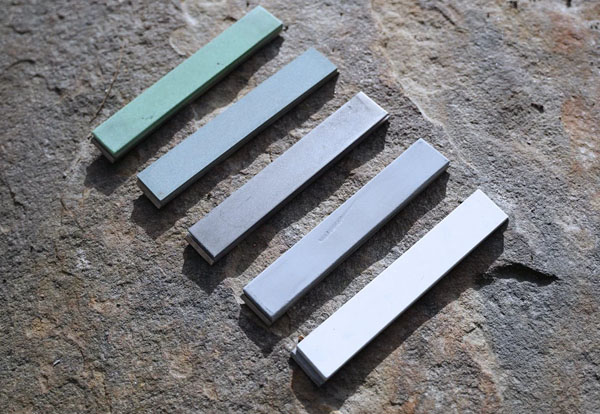Aluminum oxide vs. Silicon carbide
White aluminum oxide and silicon carbide are commonly raw materials for producing Sharpening stones. The grinding effect for knives depends on the two raw material characteristics and the production technology of the sharpening stone.
The hardness of white fused aluminum oxide is Mohs 9.0, Rockwell hardness is 46HRC, and Vickers hardness is HV 2200-2400 kg/mm2. On the other hand, the hardness of silicon carbide is Mohs 9.2-9.5, Rockwell hardness is 83-85HRC, and Vickers hardness is HV 2800-3400 kg/mm2. However, it is not necessary to adopt harder abrasive material for better grinding. Although the hardness of white corundum is lower than that of silicon carbide, its toughness is higher. Especially for austenitic stainless steel such as 304312316310 and 45 # carbon steel, white aluminum oxide whetstone can meet the requirements of efficient grinding. For steels with high hardness, such as 420,440C, 110V, 3V, D2, and other Martensite steels, the tool steel is hard and rigid. So a Sharpening stone made of silicon carbide is required.
In addition, the formula of the Sharpening stone itself and the hardness of the binder are also important factors that affect the effect of the Sharpening stone. Users need to purchase proper knife sharpeners for different applications.
















